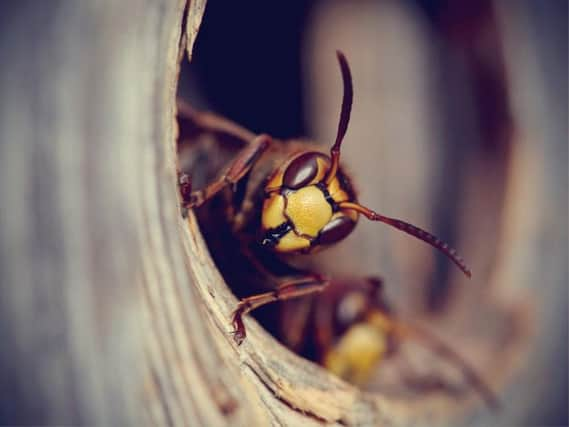Freak weather could lead to insect invasion this summer


An exceptionally mild winter, combined with an early and warm start to spring, have created ideal breeding conditions for a boom in the bug population.
As a result, experts say the number of wasps, flies, ants and fleas could be about to soar.
Advertisement
Hide AdAdvertisement
Hide AdAnd homeowners are being urged to keep good hygiene habits and take suitable precautions to try and avoid an infestation over the summer.
Ian Urquhart, who runs Advanced Pest Management, said, "The numbers of many pests in the UK are naturally diminished by cold winters, but the weather has been very different this year and it has been much milder than normal.
"Many will have come out of hibernation early to seek food and begin the reproduction process, and that will have continued through a warm spring.
"Pests that would usually remain dormant for much longer could have become active sooner, potentially leading to more prolific breeding trends and a larger population.
Advertisement
Hide AdAdvertisement
Hide Ad"We will only know for sure later in the year, but it could be that we are facing a bumper season for insects."
His prediction follows another winter with above-average recorded temperatures, with the average temperature for winter 2016/17 recorded as a mild five degrees.
Similar conditions after winter 2015/16 contributed to a spike in summer pest activity and Mr Urquhart, a committee member for professional register Basis Prompt, believes this year could see even more.
He added: "Most insects benefit from warmer weather, which allows for longer periods of ideal conditions for egg-laying and hatching.
Advertisement
Hide AdAdvertisement
Hide Ad"The mild winter will have allowed more fly pupae to survive and hatch as soon as the warmer weather sets in, while ants are likely to emerge in greater numbers as temperatures rise.
Mr Urquhart also predicts an increase in the number of wasps this year, following a warm and dry autumn in 2016.
"Female wasps usually die off as the queen enters hibernation, but their activity last year will have continued well into the autumn.
"This will have given them more time for breeding and will enable more queens to come out of hibernation this year."
Advertisement
Hide AdAdvertisement
Hide AdStephen Jacob, chief executive of PROMPT, said, "Pests are always on the lookout for food so cleaning up mess and ensuring bins are emptied regularly are simple precautions that we should all be taking."